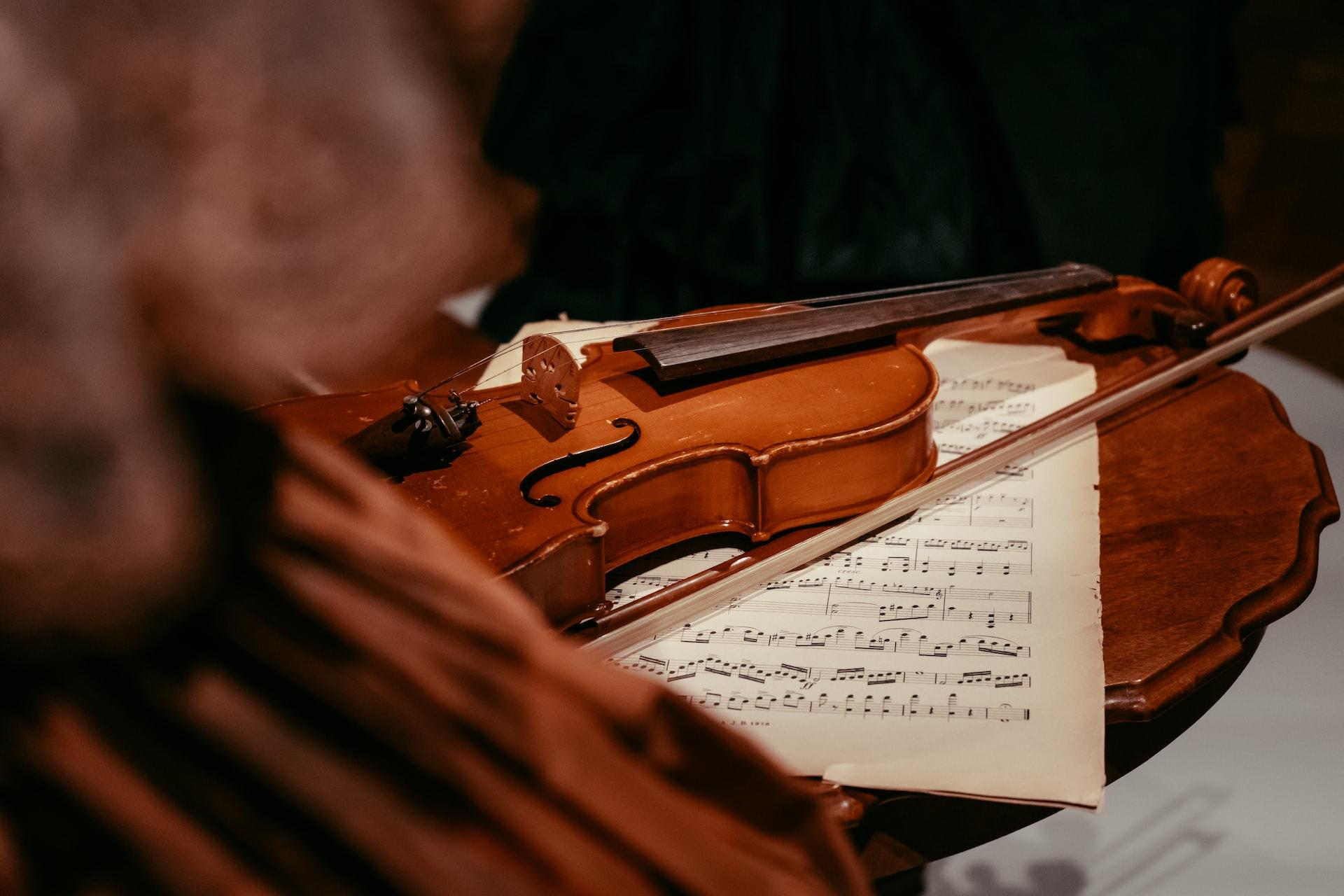If you're learning to play the violin or have for a while, you may end up having a conversation with your teacher or tutor about grades. In the world of music, grades are the exams that musicians take to prove their level and musicians' abilities are often referred to in terms of their numbered grades.
Rather than the grades you get when you take an exam (A through D), the grades are more accurately the level of the exam itself. Students are still given a score and awarded a level if they pass, which is also a grade, just to confuse matters. If you've been learning musical instruments for a while, you'll know what we mean.
The grades are generally numbered 1 through 8 and in Australia, there are 2 main awarding bodies that we'll be focusing on: AMEB and ABRSM. AMEB is the Australian Music Examinations Board and was founded in and operates primarily in Australia. The ABRSM is the Associated Board of the Royal Schools of Music from the UK and offers internationally-recognised awards.
They both offer grades in violin numbered from 1 to 8, but they don't accurately line up with one another. In other words, a Grade 1 from AMEB is not the same as a Grade 1 from ABRSM. Generally, the AMEB grades are considered to be equivalent to an ABRSM grade two levels higher.
Though the grades are numbered, you don't necessarily have to have done the grade before to take the grade after. Basically, the previous grade isn't a prerequisite for the following grade. In some instances, it may be worthwhile skipping a grade.
However, since most students just work their way through each of the grades, it's worth thinking about whether you really should be skipping grades. Let's see why and when you should skip a grade and when you should just stay the course.

Reasons to Skip Violin Grades
The most obvious reason to skip a grade is in the event the musician is incredibly gifted and could easily do a grade or two higher than the latest grade that they've done.

Since the time it takes to advance from one grade to another is around a year for the lower grades and closer to two years for the higher levels, it's not something you're likely to rush through.
For very gifted violinists, skipping grades is only really likely at the lower levels and they could always just do two grades within the year rather than skipping one altogether.
Again, skipping a grade because a student is gifted may result in them missing certain technical lessons that would benefit them further down the line so it's only really worth considering if the teacher or tutor is certain that they've mastered everything they need to know from the grade that they will be skipping.
A more common reason to skip grades is that the violinist hasn't ever done any of the grades. If somebody has been playing the violin for a while but never taken any of the grades, it's probably not worth wasting their time with the lowest grades if they clearly play well beyond those levels.
In this case, they're not really skipping grades, they're just starting their exams at a different grade because they haven't done any grades before. The system is clearly designed for students to be doing their grades from when they start playing the violin.
Reasons to Not Skip Grades
While there are a couple of good reasons to skip grades, there are far more reasons not to skip them.

As we mentioned, while completing every single grade in order isn't obligatory, they're designed as sequential qualifications, which means the skills, techniques, and pieces from one particular grade should help a student build a foundation for the following grade.
At certain grades, the skills and techniques from the previous grades are assumed and if a student has skipped a grade, it's not guaranteed that they have been adequately tested on some of the earlier technical skills or knowledge that they're supposed to have.
Normally, a violin teacher or tutor will tell their student whether they really feel like they should skip a grade and just because a student can play a particular piece from a higher, it doesn't mean that they should automatically skip a grade.
It can be tempting for students to want to skip grades or basically run before they can walk, but unless you're incredibly driven and looking to learn twice as much violin as the average student, then it's probably not worth it.
With any instrument, it's important to learn everything you can about the technique, enjoy your playing, and remember that practice makes perfect! Rushing it can often lead to problems later on.
Can You Always Skip Grades?
We've already mentioned that there's nothing really to stop students from skipping grades other than some good reasons, but that isn't entirely true.

For students doing their grades with ABRSM, there is actually one instance where grades cannot be skipped.
For the higher grades, the Grade 5 Music Theory exam is a requirement. This means that any student looking to do Grades 6 to 8 must have completed the Grade 5 Music Theory Exam.
The only instance where this will affect a student looking to skip grades (assuming they're only looking to skip one grade) is if a Grade-4 student wants to go directly to Grade 6.
Why Is Grade 5 Music Theory So Important?
In addition to being a requirement for later grades, the Grade 5 Music Theory exam covers rhythm, time signatures, pitch, scale and key signatures, intervals, chords, instruments, and music in context.
For certain universities around the world, it's also a requirement for students looking to study music. Naturally, similar grades are required, but it's a fairly foundational level of music theory for students looking to study music academically.
Again, it's unlikely that you'll want to skip a grade or that your teacher or tutor will recommend it, but if you're certain about skipping a grade, this is the one instance in which you can't.
How to Pass a Grade
Rather than thinking about skipping grades, it's probably a better use of your time to focus on the grade you're on, adequately prepare, and pass with flying colours.

Here's how to not only pass your violin grade but absolutely crush it.
Know the Exam
The first thing you should do is know what's expected of you, how the exam will be, and what you'll have to do. You don't want any surprises on the day and knowing exactly what you have to do is key.
Your teacher or tutor will likely go through all of this with you, but if you have any doubts, be sure to ask them.
Once you know what's on the exam, what you'll be expected to do, and how you'll be graded, you can start preparing for it.
Practise Your Technique
There are plenty of things you can do to make sure that your violin technique is excellent for the exam. In addition to rehearsing (which we'll get to in just a second), you should also regularly practise scales, arpeggios, and other exercises that will improve your violin technique.
You want to be as familiar with your violin as possible for each exam and your technique needs to be sharp. Not only can you ask your teacher or tutor for practice exercises and the technique you should be working on, but you can also find plenty of useful practice techniques online.
Rehearse
At every grade, there are pieces that the musicians are expected to know and play as part of the exam. If you've studied what's on the exam and the syllabus, you'll know what these are. You'll want to make sure that you can play these pieces in your sleep so regularly rehearse them and not just in your lessons.
As with most activities and skills, little and often is far better than cramming so get into the habit of rehearsing as often as you can rather than infrequently for long times. The law of diminishing returns applies to memory, too, so it's better to find half an hour each day to rehearse than to rehearse for hours on end each weekend.
On the Day
Finally, you'll want to be in the best frame of mind when you do your exam. Get a good night's sleep, arrive with time to warm up, and plan your day. You don't want to show up flustered because you didn't know where you had to go or were running late.
It may seem silly, but it can be useful to plan how you're going to get to your grading, when you'll need to leave, who you need to speak to, etc. Do anything that will put your mind at ease before you go.
This will also help you to sleep much better because you'll have nothing to worry about, especially if you're fully prepared musically, too!
If you need more help or want to learn how to play the violin, you can find private tutors and experienced violinists online who'll help you with everything from learning to play to practising scales and preparing for exams with lessons that are adapted to you.
No two violinists are alike, after all!
Summarise with AI:















